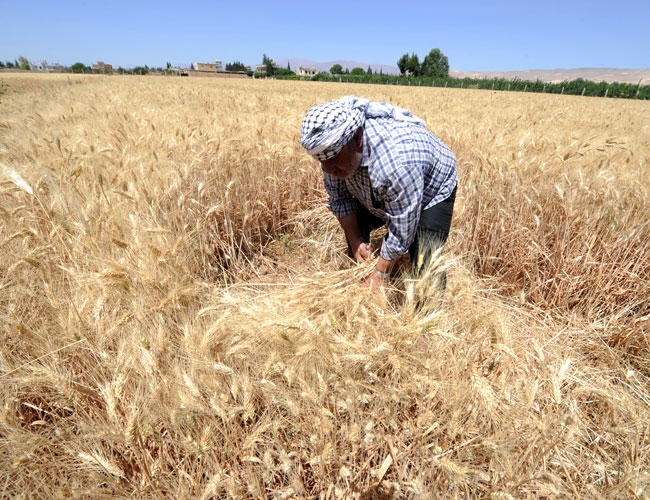Weather and conflict limit Syria’s agricultural production, perpetuating food insecurity

A recent report from the Food and Agriculture Organisation of the United Nations (FAO) shows the troubling effects that severe weather and prolonged conflict have had on Syria and the country’s agricultural output. The report estimates that 5.5 million Syrians remain food insecure and require some form of food assistance.
Wheat production, a staple in Syrian agricultural production, fell to a 29 year low, according to the UN report. In addition to the extreme weather in Syria, the ongoing conflict has damaged vast farming areas, displaced thousands of Syrian farmers, and triggered a sharp increase in the cost of agricultural inputs, according to the FAO.
Many farmers from the north-eastern region that typically provide over half of the country’s wheat reported this year as the worst agricultural season in living memory. And because of the conflict, key agricultural inputs and equipment, such as fertilisers, pesticides, subsidised fuel, and seeds, are in limited supply or are very expensive.
Mike Robson, FAO’s Representative in Syria commented:
"Agricultural recovery is essential for Syria now and in the future. FAO has focused on keeping production from collapsing during the conflict and is engaged in a host of activities in the country to support irrigation, livestock vaccination, household nutrition and entrepreneurship among the displaced."
Although the agricultural production of the region remains a concern, the report highlights that food security levels have slightly improved over the past year, due to enhanced security and better market access. The World Food Programme (WFP) is currently reaching around 3 million people with food assistance in the weather-worn and conflict-ridden areas of Syria.
A key takeaway from the report is that the next two years are crucial for rebuilding lives and livelihoods across the country. FAO's programmes helped farmers grow enough wheat to feed an additional 1.7 million people in 2017, and the FAO is currently working to provide aid to those who are displaced and struggling with food insecurity without Syria.
The AIDF Global Summit will return to Washington D.C, in 2019.
If you’d like to stay informed on the latest updates in aid and development, please sign up for the AIDF newsletter.
Photo credit: DUBAI – Reuters















